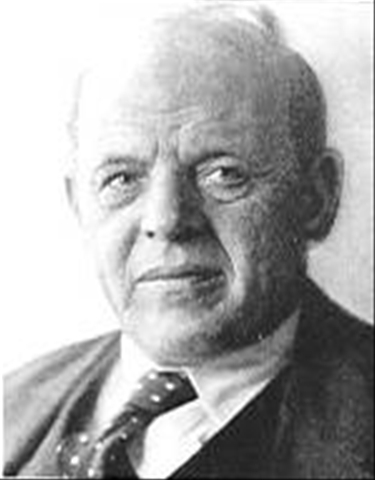
Bialik: The National Yiddish Poet of the Diaspora
==================================

 Immanuel the Roman's Critique of Dante's Divine Comedy and Maimonides' Guide for the Perplexed
Immanuel the Roman's Critique of Dante's Divine Comedy and Maimonides' Guide for the Perplexed
Hayyim Nahman Bialik (1873 Ukraine, 1934 Vienna) was nicknamed “the National Poet” of Israel. This perhaps, among other things, because his poems in Hebrew (Israel’s revived national language) addressed Jewish national questions of the day.
For example it is written about him in Wikipedia:
By writing his works in Hebrew, Bialik contributed significantly to the revival of the Hebrew language, which before his days existed primarily as an ancient, scholarly tongue. His influence is felt deeply in all modern Hebrew literature. The generation of Hebrew language poets who followed in Bialik's footsteps, including Jacob Steinberg and Jacob Fichman, are called "the Bialik generation" [1].
Yet, the question should arise as to whether Bialik’s Hebrew indeed a new language or was it simply - translated Yiddish (with values and phrases of the Jewish Diaspora). For example, Bialik’s Hebrew was to be read in the Ashkenazi accent unlike the Hebrew of his time (and our time as well) which is to be spoken in the Sephardic accent.
The Hebrew poem “One, Two” (Achat, Shtaim) would serve as an example [2]:
In this poem a counsel is given to the young man to marry, this advice is given from one that failed to do so and remained an “old bachelor”. In Hebrew the term Bialik uses to denote “old bachelor” is “ravak zaken”. In Hebrew it means unmarried old man. However, as Alan D. Corre notes in his translation the term in Yiddish is the correct one “Alte Bochur”, meaning an “old ‘young man’” someone that remained as if young and did not mature appropriately to his chronological age – someone “stuck”.
Now the Yiddish term is stronger and more ironic in meaning than both its Hebrew and English parallel terms, and it is this Yiddish term that Bialik (for whom Yiddish was his birth and youth language – the language he thought in its terms) was trying to transfer and translate to Hebrew with only partial success (in the opinion of the author of this article).
-----------------------------------------------------
[*] I wish to thank Prof. Alan D. Corre for his ideas, on which this article is based
[1] Entry: “Hayyim Nahman Bialik”, Wikipedia, 01/04/2008
[2] This poem was translated to English by Alan D. Corre. See: Alan D. Corre, “One, Two”, Reconstructionist, July 1988, p. 28
Dear visitor, please take a short moment to sign my guest book!
----------------------------------------------------------------

© 2008 Emails are
gladly received
Hear Psalm 122 performed to the Author's Music
Or Hear it in the background of photos of Jerusalem from
www.JerusalemShots.com
"Open Closed Open": The older Amichai on the younger Amichai
The Poetry
of Manoello Romano : Biography, Writings, Short Poems
Other articles by G. Shaked:
ART
BIOLOGY
CINEMA
MUSIC
PHILOSOPHY
PHYSICS
(ACOUSTICS)